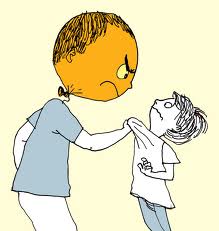Welcome!
This site is dedicated to providing educational information about effective means of achieving Self Esteem Enhancement and showcasing event opportunities that support Self Esteem Enhancement for participants.
Self-Esteem, The Key To Life
From “Tribes” by Jeanne Gibbs
The primary resource predicting the success or failure of each person as a human being is a precious energy known as “self-esteem”. The adolescents who still demonstrate stages of social development appropriate for very young children are arrested in their growth. Indeed they are stuck at earlier infantile stage and become problems for parents, teachers, peers, society . . . and themselves. Sensing their inadequacy, they live self-confirming prophecies that “I am not capable. . . I cannot learn . . . “I am no good at anything.” They lack positive self-esteem.
One educator sums it up this way. “deep inside is a longing . . . a sense of hollowness wanting to be filled. It is a need to connect with a positive sense of self and with others. The more positive the self-image, the less painful the longing . . . the less positive the self-image the more painful the longing. Too often we use temporary “fillers” such as drugs, alcohol, compulsive anti-social activities to blot out the hunger and give a temporary sense of self. It is only as we find positive self respect and “connectedness to others” that we can sense our true value. The painful longing diminishes and the hollowness is filled with self-worth. It is then that we even self-confirm positive images of ourselves.”
Studies have shown that self-esteem is not related to family, education, wealth, social class, geographical living area, father's occupation or having mother at home. It comes from the quality of relationships that exist between the child and those who play a significant role in his life. It is a person's assessment of “the self-pictures” reflected back to him from others daily.
Self-esteem is “a quiet inner knowing saying I'm glad to be me.” It is a sense of self-respect, a feeling of self-worth.
Three main areas convey loveability and worth to children:
- affirmation of their positive qualities from parents, teachers and other significant caretakers;
- affirmation from peers and siblings
- affirmation to themselves based on their own experiences of competency success (“I did that well.” “I am good at reading.” “Arithmetic is easy for me”)
Children value themselves to the extent they have been valued





 Recently Master Townsend applied to the
Recently Master Townsend applied to the 
